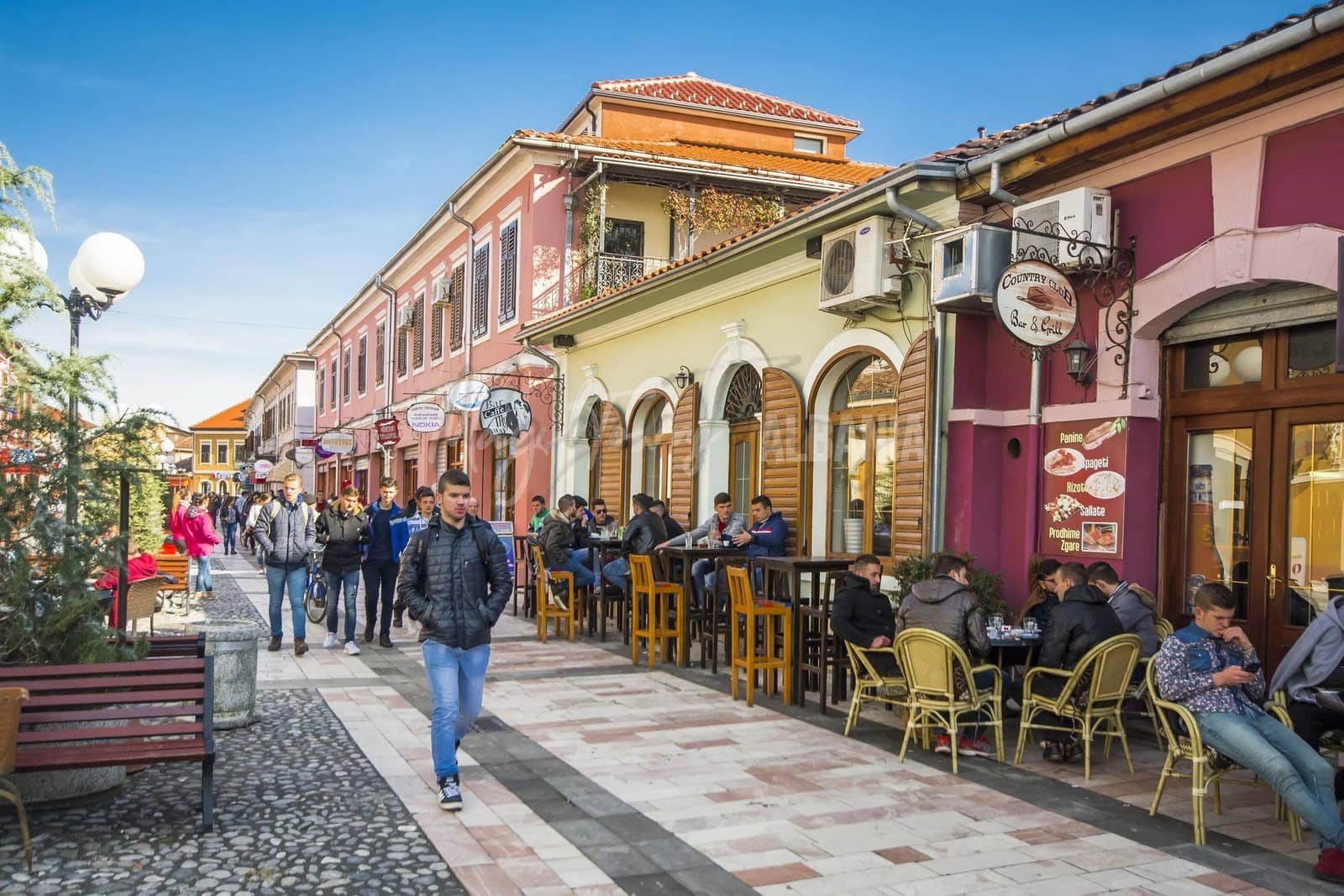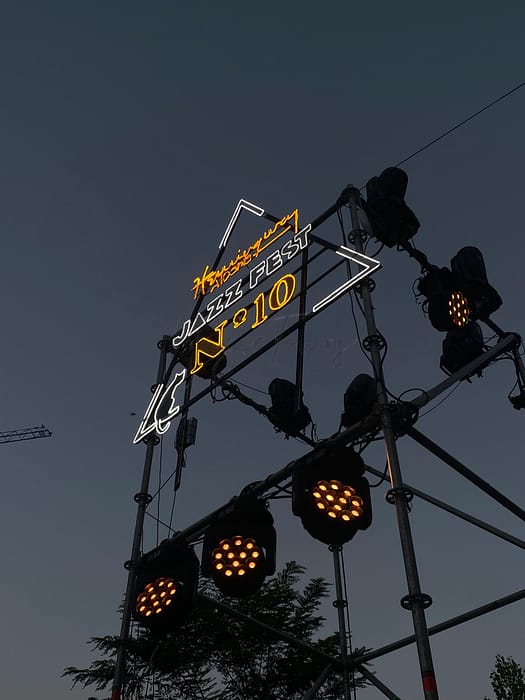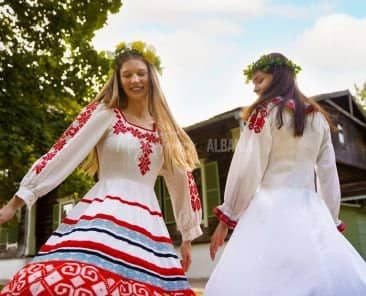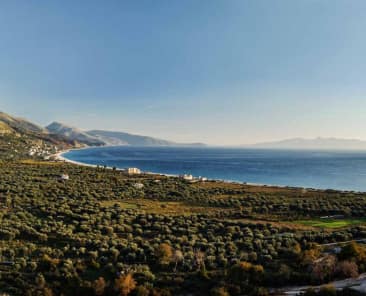Very often, readers ask us whether American, German or French citizens – to name some – are allowed to buy property in Albania, and under what conditions. In response to these numerous inquiries, Property Weekly addresses today the topic of buying property in Albania as a foreigner. We’ll provide a comprehensive guide, addressing common queries, highlighting the common pitfalls and share expert insights.
Albania presents a relatively open market for foreign investors, however, there are essential restrictions and guidelines that foreign buyers must consider.
This guide is an extract from Albania Property Guide, our e-book covering all aspects of renting, owning, and selling property in Albania. Feel free to sign up for a copy on this page.
Also Read:
- Building Permits in Albania
- Apartments For Rent In Tirana Under 400 Euro
- Albania Property Market Outlook
Download our “Buying Property in Albania” e-book and start your journey to owning a home in Albania!
Property Types and Purchasing Rights
Residential and Commercial Properties: Foreign individuals and entities can generally purchase residential and commercial properties without restrictions. Foreign individuals and entities are generally permitted to purchase residential and commercial properties in Albania without restrictions. This openness has encouraged a diverse range of investors to explore opportunities across the country.
Land Purchase Restrictions: The rules become stricter when it comes to land acquisition. Foreigners are typically barred from directly purchasing agricultural land, a restriction common in many countries to protect local agriculture. Nonetheless, there are alternatives if you really want to purchase some agricultural land in Albania:
- Company Ownership: Setting up an Albanian company allows foreigners to purchase agricultural land. This method is popular for investment projects in tourism and agriculture.
- Lease Agreements: Foreigners can engage in long-term leases for agricultural land, with terms up to 99 years. This does not provide ownership but does offer a stable platform for development.
Zoning and Development Constraints
Before proceeding with any property purchase, verifying the zoning status is crucial. Specific areas are designated for particular uses, such as residential, commercial, or agricultural, and changing these designations can be complex. Moreover, development restrictions are stringent, especially in protected or heritage areas, where property modifications are tightly regulated.
Heritage and Protected Areas
Properties within UNESCO-protected zones or national heritage sites have stringent restrictions. Foreign buyers should be aware of these limitations as they can significantly restrict the ability to modify, renovate, or develop the property
Risks such as “double selling,” where a property is sold to multiple buyers, are prevalent. Verifying the seller’s reputation and the property’s legal and financial standing is crucial. The Albanian National Agency of Information Society (AKSHI) provides an online platform for checking property registration. This step helps in identifying any potential legal issues early on. We strongly recommend you read our guide to potential pitfalls when buying property in Albania.
Buying Property In Albania As a Foreigner, Step By Step
- Research and Identify Property: Begin by exploring the market, considering factors such as location, type of property (apartment, house, or land), and budget. Online portals, real estate agents, and expos are useful resources. If using an agent, expect to pay a commission of 2% to 5% of the purchase price, with 1% usually borne by the buyer.
- Legal Representation: It is essential to hire a lawyer skilled in Albanian property law to navigate the legal complexities and ensure the property has a clean title. Legal fees generally amount to about 1% to 2% of the property purchase price.
- Property Inspection: A thorough inspection is crucial to identify any potential structural or legal issues. Keep in mind that these additional costs could potentially save you significant expenses in the long run by preventing the purchase of a property with structural issues. Professionals may also uncover issues such as hidden water damage, electrical problems, or violations of zoning regulations.
- Negotiation and Agreement: After selecting a property, negotiate the price and have your lawyer draft a preliminary contract that clearly outlines the sale terms.
- Due Diligence: Your lawyer should conduct due diligence to check for any legal encumbrances, outstanding debts, or other issues, ensuring the seller’s ownership and proper registration.
- Payment and Contracts: The payment process typically involves a deposit followed by the final payment upon contract completion. All financial transactions must be documented and conducted through legal channels.
- Signing the Contract: This takes place in the presence of a notary, who verifies the documents and identities involved. Notarisation fees vary based on the property’s value.
- Registration: The property must be registered at the local cadastral office to legally transfer ownership. This step incurs a fee of about 0.1% to 0.3% of the property’s value.
- Utilities and Services: Once the property is officially yours, arrange for the transfer of utilities and services into your name.
Conclusion: Reach Out If You Need Assistance With Buying
For foreign buyers, understanding the types of properties available for purchase and navigating the local legal system with professional help is key to a successful transaction in Albania. Magic Towns Albania offers recommended professionals to help you through the process, as well as guides on major cities and towns in Albania, providing insights into safety, amenities, and the local economy to aid potential expats, investors, and movers in making better informed decisions. Our team includes relocation experts, property experts and lawyers. Feel free to reach out if you’d like to discuss your specific needs. Happy hunting!
Author

With personal experience as an expat in UK, US, Scandinavia, Malta and more, Gillian has built a rich career in real estate and venture capital across the globe. A graduate of Cass and City University London, she is especially proud of her work with 9-11 veterans at NYU Langone.








![[Exclusive] Vlora Property Prices in 2025: 1-Bedroom Flats Outside Centre Soar by 124% 6 Vlora Property Prices](https://ml4ds5noqxtv.i.optimole.com/cb:rlaK.339f4/w:366/h:275/q:mauto/f:best/ig:avif/id:09f96afdfd57a915c910b38eaaab58cc/https://magictowns.al/pexels-czapp-arpad-3647289-10409651-2.jpg)






